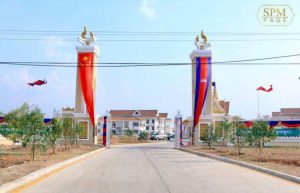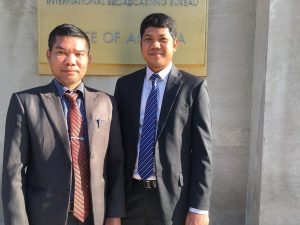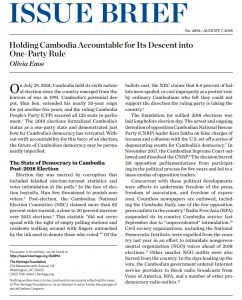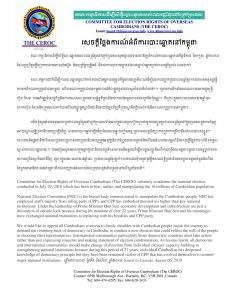Are China’s gifts a blessing or a curse for Cambodia?
—–

China’s growing dominance is met with equally growing concern in Cambodia. Despite the economic gains, too much dependence on China comes with significant commitment and risk. Reliance on China’s aid may induce Cambodia to fall into a debt trap, resulting in a loss of autonomy as a sovereign state and the deterioration of its relations with other ASEAN member states.
The lack of transparency and accountability of China’s projects is also causing social and environmental challenges in Cambodia. Criticism that Chinese companies are racing to exploit Cambodia’s resources while paying little regard to international best development practices are common among civil society actors.
The Kamchay dam, the first large-scale Chinese investment project in Cambodia, is a telling example. The dam destroyed 2000 hectares of productive forest, threatened animal species, lowered water quality and negatively affected the livelihood of local communities.
Chinese firm Union Development was awarded a concession of nearly 40,000 hectares — almost four times the amount allowed under Cambodian law — to develop a multi-billion dollar tourism hub in Cambodia’s Koh Kong province. Human rights groups allege that fishermen who had lived in the area for generations were summarily evicted, taken inland and told that they were now farmers.
Chinese investment in Cambodia’s real estate market is almost exclusively aimed at the Cambodian upper class, as well as Chinese tourists and businessmen. This is driving market prices up, making housing unaffordable for most Cambodians.
Chinese investment is also transforming Sihanoukville, once Cambodia’s premier seaside resort, into a bustling casino town. The unprecedented surge in Chinese tourists and casino development in Sihanoukville is benefitting a small group Cambodia’s rich elite, but many other Cambodians are being driven out of the area by the skyrocketing cost of living.
Even though Chinese investment is bringing wealth to Cambodia, this wealth is mainly kept within Cambodia’s Chinese community. Chinese residents and visitors in Cambodia buy from Chinese businesses, eat in Chinese restaurants and stay in Chinese hotels. The trickle-down effect to local businesses is minimal.
China’s economic power and influence can be a source for sustainable development in Cambodia, but for this to happen requires strong leadership from both countries. Both sides must make concerted efforts to promote transparency, accountability and inclusiveness in development projects.
Shared responsibility and multi-stakeholder partnership should be the guiding principles of foreign investment in Cambodia to ensure that Chinese investment and aid contributes to Cambodia’s economic, social and environmental progress in the long run.
Read the entire article at AsiaForum



